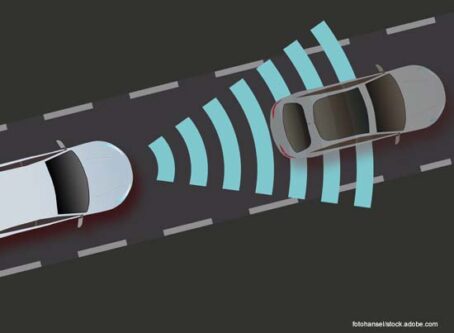Truckers say emergency declaration opens door to more hours flexibility
Truck driver Joe Murphy believes the Federal Motor Carrier Safety Administration’s intentions were good when it established the hours-of-service regulations for commercial motor vehicles. However, Murphy – as well as dozens of other truck drivers – recently told the agency that the regulations are causing more harm than good.
The reality is, truck drivers say, that a rule telling them when they can’t drive is simultaneously forcing them to drive during the hours the rule allows. Considering that most truck drivers are paid by the mile, it’s easy to imagine why truckers would feel compelled to keep operating during their allowed driving window even if they are tired or if the road conditions are unsafe.
“Us drivers all understand why you came up with the hours-of-service regulations,” Murphy wrote. “Many companies out there try to take advantage of their drivers. However it’s time to face facts. These HOS regulations are hurting drivers more than they are helping. Get rid of the 11-hour drive time. Get rid of the 14-hour max day. Get rid of the 36-hour reset. Keep it simple. Allow drivers to drive, and when they feel tired they can stop and take a 10-hour rest period.”
“If you want to keep drivers safe on the road, come up with a system that allows drivers to report the company they are driving for if they are being forced to continue driving if they are tired. Anonymously, if need be.”
Murphy’s comments were in response to an FMCSA notice that asked the public to provide feedback on the agency’s COVID-19 emergency declaration and whether or not it should continue. The declaration has provided regulatory relief to truck drivers hauling emergency loads since March 2020.
Should the emergency declaration continue?
Through the notice, FMCSA said it wants feedback regarding the use of the waiver and how it affects safety.
“The agency seeks public comment on the usage of the emergency declaration for the covered products,” FMCSA wrote. “Specifically, if the usage is fit for the intended purpose of the limited relief. Commenters are encouraged to share with the agency the source of the data or information and provide recommendations on additional actions the agency should consider in monitoring the use of the declaration. Further, any data or information the agency should use in determining whether continued extension or modification of the declaration is needed. The agency also seeks public comment on the safety and supply chain impacts of the emergency declaration.”
As of the morning of Friday, Sept. 16, FMCSA had received 273 comments on the notice. Many of the comments came from truck drivers who contend the success of the declaration indicates that they are capable of driving safely with more flexibility. FMCSA told Land Line in August that it was aware of only two crashes involving truck drivers operating under the waiver since it began more than two years ago. Both were single-vehicle crashes, and neither yielded major injuries.
“I believe that, as professional drivers, we are able to regulate ourselves for what hours of service best suit us,” Jordan Ray wrote. “I have had numerous occasions when I have run out of daily, or weekly hours and I am not tired. Therefore, I have been forced to stop, and I am unable to sleep. This makes it more dangerous for me, because now I am awake until either my daily or my recap hours are available. In these situations, I am not afforded the luxury of being able to wait until I am fully rested because I must keep my load moving.”
No way to regulate sleep
Javier Flores wrote that one of the issues with the current hours-of-service regulation is that it’s impossible to regulate when a person is able to sleep or be well-rested.
“Hours of service force us truck drivers to stop and rest even if we are not tired, which means that from those 10 hours a lot of times we only really rest a fraction of that time,” Flores wrote. “I believe that it’s more dangerous for us … because we have appointments to meet and a limited amount of hours we can drive. We have to get up even if we are not fully rested. I believe that allowing us to drive the amount of hours that we can and resting when our bodies need it will be safer for everyone. It will also allow us to be able to park in safe designated areas, because not everyone would have to stop at basically the same time.”
Pete Gonzales, who has been a truck driver for more than 50 years, wrote that the emergency declaration has allowed truck drivers to operate when the conditions are safe and to pull over when they are tired.
“The COVID exemption has given the driver the choice to drive when he feels rested and to stop and rest when he is tired,” Gonzales wrote. “I … have been hauling medical equipment throughout the pandemic, and I feel that this is one of the smartest the federal government has done to help the driver and this country.”
FMCSA’s current emergency declaration is scheduled to expire Oct. 15.
How to comment
The public has through Sept. 21 to provide feedback to FMCSA about the emergency declaration and whether or not it should continue.
To comment, click here or go to the Regulations.gov website and enter Docket No. FMCSA-2022-0189. LL









